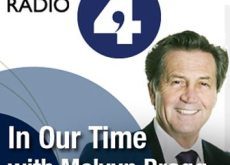Gender pay gap and transparency Es wird oft vermutet, dass mehr Transparenz hier Abhilfe schaffen könnte: Wenn alle wüssten, was alle verdienen – dann wären diese Unterschiede nicht länger haltbar. Die zu kurz Gekommenen würden protestieren, mehr fordern und so für mehr Gleichheit und Gerechtigkeit sorgen. Seit dem 6. Januar dieses Jahres haben Beschäftigte ein Recht darauf zu erfahren, wie viel Kollegen beziehungsweise Kolleginnen des jeweils anderen...
Read More »Johan Asplund
En av Sveriges främsta och mest uppslagsrika sociologer — Johan Asplund (1937-2018) har gått ur tiden. När yours truly som ung student på 1970-talet läste några betyg i sociologi, var en av mina stora inspirationskällor Johan Asplunds underbara lilla klassiker Om mättnadsprocesser (Argos 1967). Jag tror den känsla många av oss har inför samhällsutvecklingens “kvalitetsförbättringar” är inte så lite av “rulla ut röda mattan och rulla in den bakom oss.” Asplunds funderingar...
Read More »On health and inequality
On health and inequality [embedded content] Advertisements
Read More »Mainstream economics and the We-Have-To-Do-Something fallacy
Twenty-five years ago Phil Mirowski was invited to give a speech on themes from his book More Heat than Light at my old economics department in Lund, Sweden. All the mainstream professors were there. Their theories were totally mangled and no one — absolutely no one — had anything to say even remotely reminiscent of a defence. Being at a nonplus, one of them, in total desperation, finally asked: “But what shall we do then?” Yes indeed — what shall they do? Because, sure, they...
Read More »Blacklisted economics professor found dead
Blacklisted economics professor found dead Professor Outis Philalithopoulos was found dead in his home three days ago; the coroner’s report cited natural causes that were left unspecified. Unfortunately, all of the professor’s academic work has disappeared; the only trace left appears to be the following letter, which he sent to an admirer shortly before his death. The understandably concerned recipient of the letter has shared its contents with Naked...
Read More »Was heißt es in einem reichen Land arm zu sein?
Was heißt es in einem reichen Land arm zu sein? #Unten illustriert, was die versammelte deutsche Bildungsforschung seit Jahren stets aufs Neue nachgewiesen hat. Die Herkunft bestimmt, insbesondere in Deutschland, den Lebensweg, wer unten geboren wird, der bleibt in der Regel dort. Der soziale Aufstieg wird zum unerreichbaren Ziel. Doch sind es in den sozialen Netzwerken vor allem die Aufsteiger, die unter dem Hashtag von ihren Erfahrungen berichten. Jene,...
Read More »The New Classical counterrevolution
In a post on his blog, Oxford macroeconomist Simon Wren-Lewis discusses if modern academic macroeconomics is eclectic or not. When it comes to methodology it seems as though his conclusion is that it is not: The New Classical Counter Revolution of the 1970s and 1980s … was primarily a revolution about methodology, about arguing that all models should be microfounded, and in terms of mainstream macro it was completely successful … Mainstream academic macro is very eclectic in...
Read More »My favourite girls (personal)
My favourite girls (personal) Hedda (5), Linnea (19), and Tora (25) Advertisements
Read More »Being a class mongrel
Being a class mongrel We were working class, and you don’t lose that. Later on, I bolted on middle classness but I think the working-class thing hasn’t gone away and it never will go away. Quite a few of my interactions and responses are still the responses I had when I was 18 or 19. And the other things are bolted on and it is a mix. It is what it is, and a lot of people are like that. I’m a class mongrel. Melvyn Bragg Most people think of social...
Read More »Kalecki and Keynes on the loanable funds fallacy
Kalecki and Keynes on the loanable funds fallacy It should be emphasized that the equality between savings and investment … will be valid under all circumstances. In particular, it will be independent of the level of the rate of interest which was customarily considered in economic theory to be the factor equilibrating the demand for and supply of new capital. In the present conception investment, once carried out, automatically provides the savings...
Read More » Lars P. Syll
Lars P. Syll









